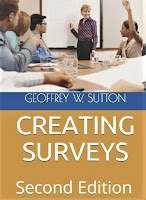Happiness may be the quintessential positive feeling state. We commonly wish others a happy birthday or anniversary.
The Subjective Happiness Scale is a short four-item survey developed by Sonja Lyubomirsky and Heidi Lepper (1999) and has been completed by thousands of respondents.
The items are rated on 7-point scales that use different words to describe the end points.
A sample item calls for ratings of less
happy (1) to more happy (7):
“Compared to most of my peers, I consider myself…”
Permissions: "Permission is granted for all non-commercial use."
Availability: You can get the scale from the Website:
http://sonjalyubomirsky.com/subjective-happiness-scale-shs/
Link to List of Tests
Scale Reference
Lyubomirsky, S., & Lepper, H. (1999). A measure of subjective happiness: Preliminary reliability and construct validation. Social Indicators Research, 46, 137-155.

Comments
Post a Comment